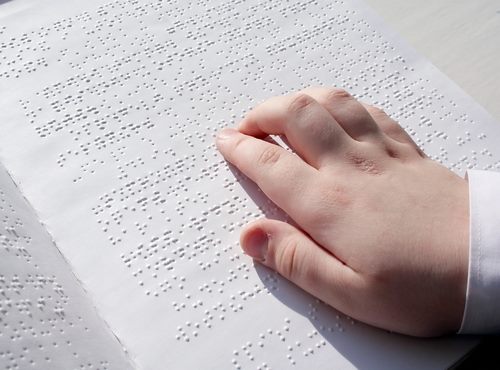Parenting is not an easy task. It takes an intense amount of endurance and tenacity, and an equal serving of unconditional love and selflessness. For a minority cohort of parents, the intensity of this task is complicated by many folds, and not by choice. Here, we are talking about the unsung heroes who are the parents of children with visual impairment (VI).
Although not intentionally, we often habitually neglect the needs of the supporter as we are naturally drawn into tending to those that require more noticeable support first. However, a 2014 study conducted in Hong Kong by Lee, Tsang and Chui compared the concerns of the parents of children with VI to two other sets of parents – those taking care of children with learning and behavioral disabilities, and parents of children with no apparent disability. Their study focused specifically on what parents worried about in regards to their children’s education at mainstream schools in Hong Kong. Unsurprisingly, Lee et al concluded that the needs of parents with children with VI or with learning and behavioral disability were comparable, and that both had significantly higher needs than that of parents with children that have no disability. Despite this difference, they noticed that all groups generally expressed a similar desire for more services at school and within the community, which could provide ongoing support and additional information about their child’s future educational and overall prospects.
So, how much “more services” do these parents desire from our educational and social services providers? Through a search online, I was quickly able to find an adequate set of community resources and amenities that serve to specifically assist parents and their children with VI. Through the two “Rehabilitation and Training Centers for Visually Impaired Persons” located in Sham Shui Po and Tuen Mun, the Hong Kong Society for the Blind have established a number of initiatives and events that provide career and future developmental support, rehabilitation training to promote future independent living, as well as educational and community support through the “Parents Resource Center for Visually impaired children”. This center offers a hotline service, training services and educational talks for parents and their children. Furthermore, parents may take part in regular group activities with their children or participate in parent support groups in order to share their individual experiences and gain new perspectives from other mothers and fathers coming from similar situations.
There are clearly provisions and facilities already put in place, therefore the solution may not necessarily be the need for more resources and instead, may lie elsewhere. A more effective solution may be to increase visibility and accessibility to the above services. Parent support groups may also be employed online through forums, blogs and other social media platforms. Not only would this be more convenient, but it may also foster conversations that may otherwise be humiliating if given face-to-face. Further, the above study did not address the ever-present stigma attached to disability. More extensive study about how Hong Kong people perceive those with visual disability will be required to help shed light on how discriminatory beliefs can be abolished. This may also relieve some anxiety associated with social stigma for families dealing with disability, and thus in turn improve their overall well-being. Oftentimes, parents may need even more support than their child. Let us praise these unsung heroes. Let’s not push them aside and classify them as “different” or “too difficult” to deal with. The principles of equality and inclusion applies for all and in all facets of life – not just for those who wrongly believe in their superiority.
Author: CC
References:
Lee FMY, Tsang JFK, Chui MMY. The needs of parents of children with visual impairment studying in mainstream schools in Hong Kong. Hong Kong Med J. 2014;20(5):413-420. doi:10.12809/hkmj134202.
The Hong Kong Society for the Blind. Annual Report 2014/15. http://www.hksb.org.hk/…/a…/HKSBAR2015AllPagesresize_120.pdf. Published 2015. Accessed October 20, 2016.
The Hong Kong Society for the Blind. Our Services. https://www.hksb.org.hk/en/landing/37435/OurServices/. Published 2016. Accessed October 20, 2016.
Photo reference: http://cdn4.kidsdiscover.com/wp-conte…/…/2013/10/Braille.jpg

